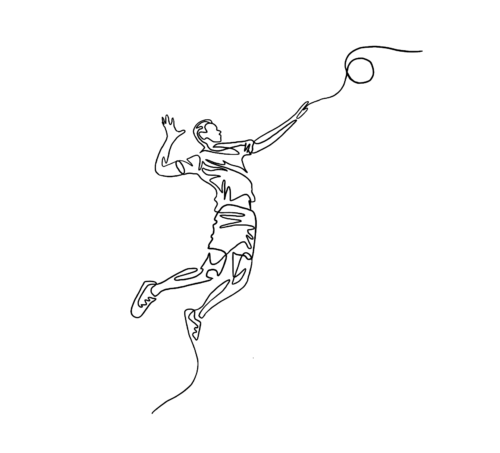“The rumor on the team….” was a phrase student athletes repeated several times when asked about one of Harvard Athletics’ newest decisions: to get rid of the tradition of fitness tests during preseason training.
Grace Allen ’24, a junior on the women’s volleyball team, mentioned hearing “rumors in the weeks leading up to the start of preseason, and then [the coaches] surprised us on the actual day of the test by canceling it.”
Junior football player Kwaku Abudofour ’24 told a similar story, stating that members of the team were not officially told of this change until the first day of camp. He explained that this was probably a result of coaches hoping to ensure that players entered preseason in the same condition they would have been in if they were expecting a test. Athletes did not take preparation for these tests lightly, with Adubofour himself describing what would have been a rigorous assessment.
“We were split into 3 groups, lineman, skills, and mid skills…with the rest being the time it took for the other 2 groups to go,” Adubofour noted. To keep players on their toes, he explained that coaches would also implement “random sudden changes where we’d have to go again with no rest.”
The football fitness test typically consists of countless rounds of sprints and shuttle runs, all at the will of their coach’s decision for surprise elements. Division 1 athletic programs generally conduct fitness tests during preseason. For fall sports like football and volleyball, these tests typically take place in late August before most students return to campus. The tests are implemented not only to determine the athletic status of individual team members, but to also measure appropriate fitness regimenes to prepare for the season.
Yet this year looks much different.
Fall 2022 was the first season to see the termination of fitness tests, starting with the football and women’s volleyball teams. A dive into the most current version of the current NCAA handbook may give more insight into the reasoning behind this, but it appears that the actual reasoning behind the change is not known at this time.
The NCAA handbook currently states “student-athletes must be provided with at least three continuous hours of recovery time between any sessions (testing, practice or walk-through) occurring that day.” The handbook also gives student-athletes an acclimatization period of 7 days during which an institution may not hold both a conditioning test and an on field practice on the same day.
Speed, conditioning, and agility tests are included in this new rule, which inherently rules out the traditional fitness tests that most teams subscribe to at the beginning of their season, unless a coach is willing for their team to forgo a day of practice. As the number of “countable athletically related activities” (CARA) are already limited, this may not be a worthwhile sacrifice.
This change to the NCAA handbook comes in light of nationwide reports from college athletes who have described spending well over the current NCAA regulated limitation of 20 hours a week on CARA.
According to one football player who wished to remain anonymous, “there are mixed opinions” about the decision to not conduct a fitness test during football’s preseason camp. Though these tests can often cause physical overexertion, athletes who have been tested in the past are disappointed in the missed opportunity to demonstrate the fruits of their labor to their coaches. This anonymous player voiced the concerns from his teammates about creating a culture of “weakness” and of wanting first years to understand the mental and physical toughness associated with the game.
On the other hand, as Allen points out, the volleyball fitness test “was definitely a source of stress,” and as a result many on her team were thrilled that it was canceled. With a full day of practice already physically strenuous, she argued that the added stress of undergoing a physical assessment in front of coaches was not something that will be missed.
“We haven’t heard of any of the specific reasons surrounding this, so while we were excited [about the change], confusion also played into our response,” Allen added.
The NCAA has evolved rapidly over the past several years, from managing athletic seasons during the pandemic, accommodating nontraditional graduation schedules, introducing NIL policies, and now instituting stricter practice regulations. With Harvard Football and Women’s Volleyball as guinea pigs to this new era of testing absence, many future teams may begin to follow suit.
Isabel Eddy ’24 (iaeddy@college.harvard.edu) writes Sports for the Independent.

